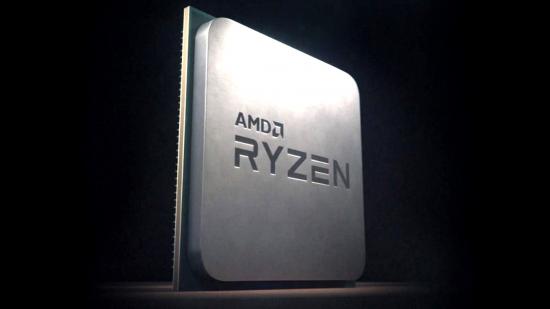It’s not long since we had our first whiff of AMD Zen 3 when a supposed next-gen EPYC Milan processor listing was spotted. Now, there are even more stirrings, again of the Milan variety, and these ones say something concrete about anticipated Zen 3 performance.
AdoredTV reports that Milan is “over 20% faster in single-threaded integer workloads compared to Rome, 20% faster in 32-core integer workloads, and between 10 and 15% faster in all core (that is 64-core) workloads”. We’d previously heard rumours of a 15% increase in IPC (instructions per clock) with Zen 3 over Zen 2, but not how this might translate into workload speeds.
AMD’s EPYC Milan is the company’s upcoming server processor generation, set to take the helm from EPYC Rome. What’s important to note for us gamers, however, is that this upcoming server platform will be based on the same architecture as the next generation of AMD Ryzen processors. How much better Milan performs than Rome, then, might tell us something about how well the next generation of the best gaming CPUs from AMD will perform.
AdoredTV says that “although some rumors have stated that Milan has a 50% floating point improvement, we don’t think this is the case”. Floating point operations, which allow for flexibility and varying levels of accuracy in calculations, are very important for gaming, and a 50% improvement would certainly be impressive. But it doesn’t look like this rumour is widely supported. Instead, we have overall integer workload performance, and 20% seems to be the number.
Analysis: If this rumour is true, we can hope for a 20% improvement in AMD Ryzen CPUs
AMD’s EPYC Milan CPUs will supposedly be 20% faster in single-threaded and 32-core integer workloads, but only 15% faster in 64-core workloads. The thing is, for us gamers, that 15% stat is kind of irrelevant. Most of us won’t be gaming on a high-end 64-core Threadripper CPU, and at most we’ll be dealing with a possible 12-core, 24-thread ‘Ryzen 9 4900X’ CPU, and, most commonly, the possible six cores and 12 threads of a ‘Ryzen 5 4600’.
Single-threaded CPU performance is most important for gaming, and for most use cases up to 32 cores is all that’s needed for creative and multi-core, CPU-intensive workloads. If this rumour is correct, this means we can expect a 20% improvement in next-gen AMD Ryzen processor performance for most use cases, although we aren’t getting a full picture without mention of floating-point performance.
While this isn’t likely to translate directly into 20% higher frame rates in games – most games are still GPU-bound – in those games that are CPU-bound, such as online shooters like CS:GO and strategy games like Civilization 6, we could very well push close to that 20% increase in performance from a CPU upgrade alone.
